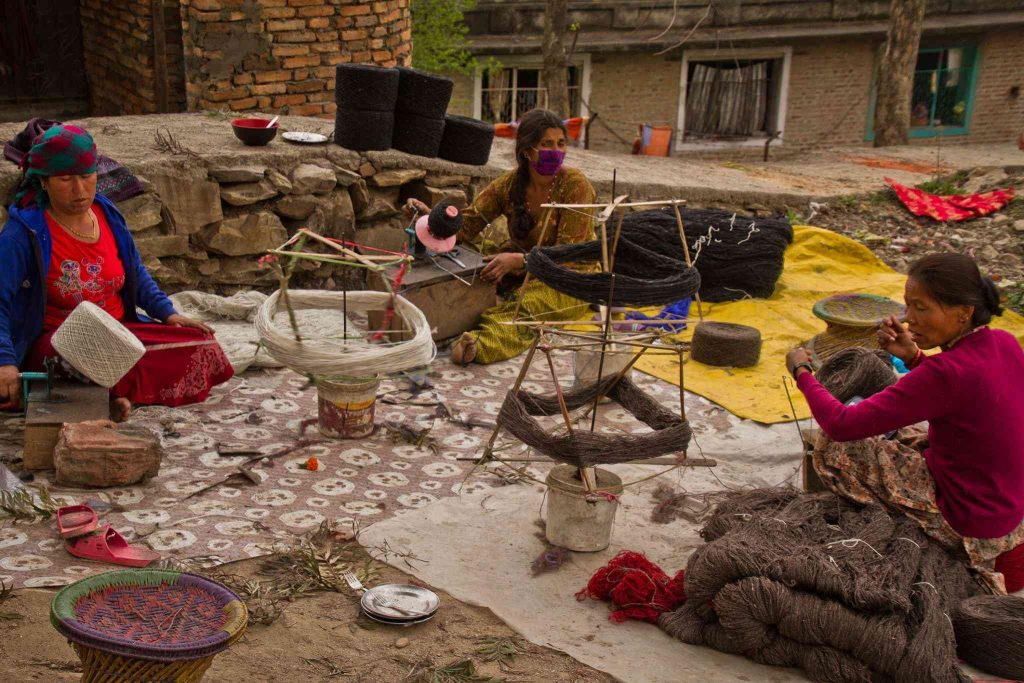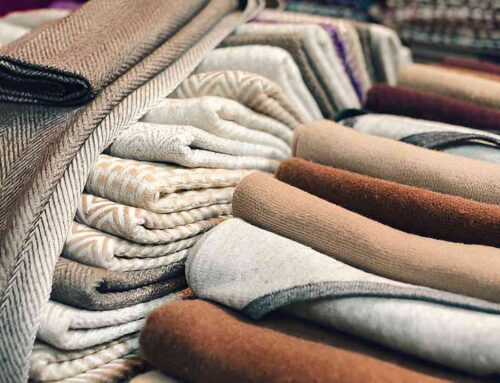Nepal’s Certified Pashmina: Embracing Authenticity, Quality, and Sustainability
In Nepal, there are several pashmina marks that signify the authenticity and quality of pashmina products. These marks are important as they provide assurance to consumers that they are purchasing genuine pashmina items. Let’s explore some of the notable pashmina marks and the significance of certification along with their issuing authorities in Nepal:
- Pashmina Certification Mark (PCM): The Pashmina Certification Mark is a crucial certification that ensures the authenticity and quality of pashmina products. It is issued by the Nepal Pashmina Industries Association (NPIA), an organization dedicated to promoting and protecting the interests of the Nepalese pashmina industry. The PCM guarantees that the product is made from genuine pashmina wool and meets the required quality standards.
- Chyangra Pashmina Mark: Chyangra is the Nepali name for the Himalayan mountain goat, whose wool is used to make pashmina. The Chyangra Pashmina Mark is issued by the Nepal Pashmina Industries Association (NPIA) and signifies that the product is made from the wool of Himalayan mountain goats. This mark highlights the use of authentic pashmina material in the product.
- Craftmark: Craftmark is a certification mark issued by the Federation of Handicraft Associations of Nepal (FHAN). It is a mark of excellence that assures consumers of the authenticity and craftsmanship of the pashmina product. Craftmark represents the dedication and skill of artisans involved in the creation of the pashmina item.
- Nepal Good Weave Mark: The Nepal Good Weave Mark is issued by GoodWeave Nepal, an organization committed to eradicating child labor in the carpet and textile industries. This mark signifies that the pashmina product has been produced without the use of child labor and supports ethical practices. It ensures that the product is responsibly made and contributes to the welfare of artisans and communities.
- The Global Organic Textile Standard (GOTS): GOTS certification is a prestigious hallmark of quality and sustainability in the textile industry. It ensures that every step of the production process, from the harvesting of raw materials to environmentally and socially responsible manufacturing, adheres to stringent organic standards. Products bearing the GOTS certification are guaranteed to be free from harmful chemicals, with a focus on sustainability and ethical labor practices. This certification is highly regarded for its commitment to maintaining the highest level of organic integrity and ecological and social responsibility, making it a trusted standard worldwide.
Certification marks play a vital role in the Pashmina industry by protecting the interests of consumers and promoting ethical and sustainable practices. These certifications assure buyers that the product they are purchasing is genuine, meets high quality standards, and has been produced responsibly. In Nepal, certifications like those issued by the Nepal Pashmina Industries Association (NPIA), Federation of Handicraft Associations of Nepal (FHAN), and GoodWeave Nepal are instrumental in upholding these standards. These authorities enforce strict guidelines to ensure that Pashmina production complies with sustainability and ethical labor practices.
Fair Trade practices are also embedded within the Pashmina industry in Nepal. These ensure that artisans and herders involved in the process are fairly compensated, work in safe conditions, and are not subjected to exploitative practices. Certifications related to Fair Trade ensure transparency throughout the supply chain and guarantee that no child labor is used. By adhering to these ethical standards, Nepal not only maintains the integrity of its Pashmina products but also supports local communities, empowering artisans and promoting sustainable economic development. Through these certifications, consumers can buy with confidence, knowing they are supporting a responsible industry while enjoying the finest quality Pashmina.






